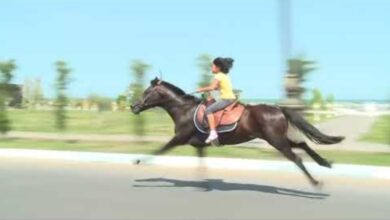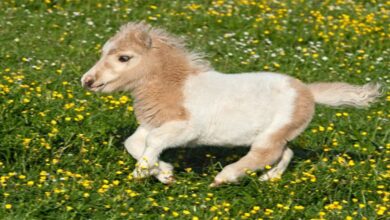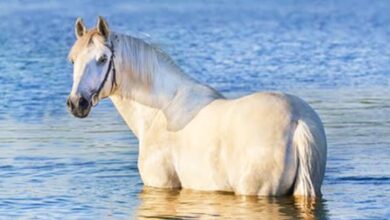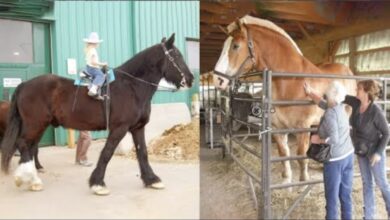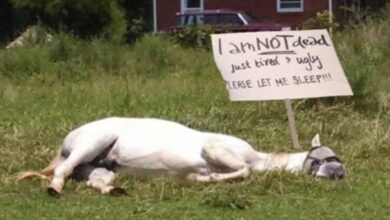20 Rare Horses That Are Born Only Once In A Thousand Years
While the notion of horses being born once in a thousand years is more metaphorical than literal, there are certain horse breeds that are exceptionally rare and possess unique qualities that make them stand out. These breeds are often associated with specific regions, cultures, or historical significance, contributing to their scarcity.
One example is the Akhal-Teke, a breed originating from Turkmenistan. Known as the “Golden Horses,” Akhal-Tekes are recognized for their metallic sheen, which can range from palomino to a stunning dun color. Their endurance, speed, and distinct appearance have made them a symbol of national pride.

The Friesian horse, native to the Netherlands, is another rare breed with a striking black coat, flowing mane, and feathered lower legs. These horses are not only visually stunning but also versatile, often used in carriage driving and dressage.
The Marwari horse from India is celebrated for its unique inward-curving ears. Traditionally associated with the Marwar region, these horses are used in cultural events and equestrian sports, adding to their rarity.
Przewalski’s Horse, the only truly wild horse species left in the world, is native to Central Asia, particularly Mongolia. Recognized for its stocky build, short legs, and dun-colored coat, conservation efforts are underway to protect and reintroduce this rare and endangered breed to its native habitat.
These horses, among others, showcase the diversity and uniqueness found within rare breeds, often with characteristics that set them apart from more common equine varieties. Preserving and protecting these exceptional horses is essential to maintaining biodiversity and acknowledging the cultural significance they carry. While they may not be born once in a thousand years, their rarity and distinct qualities make them a treasure in the world of equestrian enthusiasts and conservationists alike.

